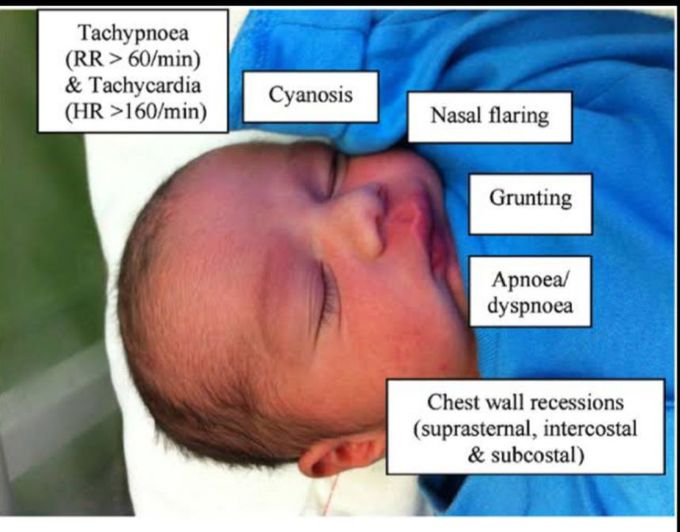

Haneen Salahalmost 2 years ago

Newborn respiratory distress syndrome Newborn respiratory distress syndrome (NRDS) happens when a baby's lungs are not fully developed and cannot provide enough oxygen, causing breathing difficulties. It usually affects premature babies. It's also known as infant respiratory distress syndrome, hyaline membrane disease or surfactant deficiency lung disease. NRDS usually occurs when the baby's lungs have not produced enough surfactant. This substance, made up of proteins and fats, helps keep the lungs inflated and prevents them collapsing. A baby normally begins producing surfactant sometime between weeks 24 and 28 of pregnancy. Most babies produce enough to breathe normally by week 34. If your baby is born prematurely, they may not have enough surfactant in their lungs.
Other commentsSign in to post comments. You don't have an account? Sign up now!

